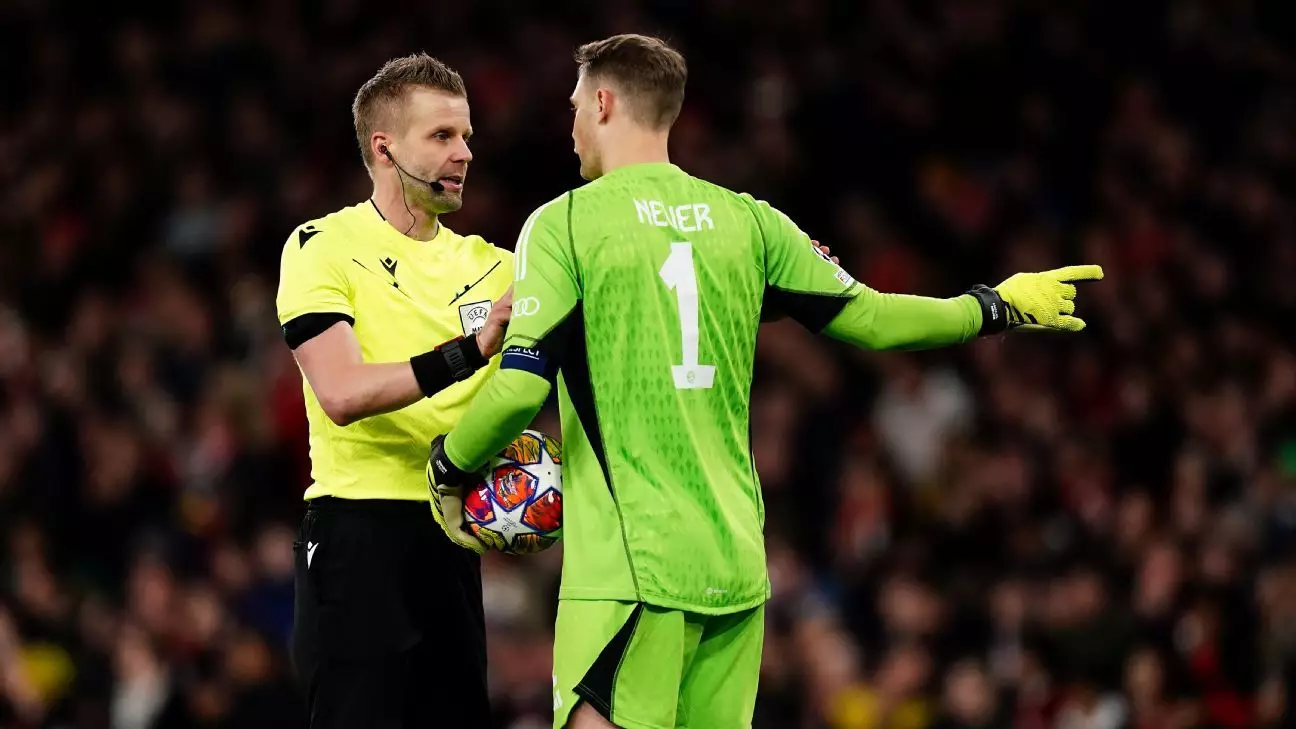Football’s governing body, the International Football Association Board (IFAB), has recently revealed a new protocol aimed at addressing the practice of goalkeepers holding onto the ball to run down the clock. The initiative comes as a response to the current rule that prohibits goalkeepers from holding the ball for more than six seconds, with the consequence being an indirect free kick for the opposing team. However, the IFAB has acknowledged that this rule is often not enforced by referees due to the significant advantage it provides to the team awarded the free kick.
In an effort to curb time wasting tactics and promote fair play, the IFAB has proposed two new methods for changing possession if a goalkeeper exceeds the time limit. These methods involve awarding either a corner kick or a throw-in to the opposition, depending on the circumstances. The IFAB’s aim is to encourage goalkeepers to release the ball more promptly, thus preventing the opposing team from being disadvantaged by an unfair tactic.
Trials for the new protocol are scheduled to take place throughout the 2024-25 season, with a review set to be conducted at the end of 2025. If successful, the new rule could be adopted across all competitions starting in the 2026-27 season. The IFAB believes that by extending the time limit for goalkeepers to eight seconds and implementing specific enforcement procedures, the incidence of time wasting can be significantly reduced. This revised protocol aims to strike a balance between penalizing deliberate time wasting and allowing for legitimate delays in releasing the ball.
Under the new protocol, referees will be responsible for monitoring the goalkeeper’s possession of the ball and initiating a countdown once clear control is established. The goalkeeper will be given a warning for the first offense and cautioned for any subsequent violations. Additionally, the restart resulting from the offense will either be a corner kick or a throw-in, depending on the location of the goalkeeper when penalized. This approach is designed to ensure that goalkeepers are incentivized to distribute the ball quickly and maintain the flow of the game.
While the new protocol shows promise in addressing time wasting tactics, it will not be implemented in high-profile competitions such as the Premier League, FA Cup, or Carabao Cup. Instead, the trials will be limited to lower-level competitions like the Football League trophy, which features clubs from League One and League Two. This selective approach allows for a controlled testing environment to assess the effectiveness of the new rules without disrupting major professional leagues.
The IFAB’s new goalkeeper protocol represents a proactive step towards promoting fair play and eliminating unsportsmanlike conduct on the field. By introducing innovative measures to discourage time wasting tactics, the IFAB aims to enhance the integrity and competitiveness of football matches. As the trials progress and the feedback is evaluated, the football community eagerly anticipates the potential impact of these changes on the sport as a whole.

Leave a Reply